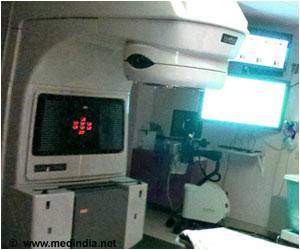Highlights
- Fusobacterium nucleatum (F. nucleatum), the bacterium found in the mouth is known to cause periodontal disease.
- Study showed that F. nucleatum is present in cancer tissues of patients with esophageal cancer.
- The survival time of such patients who had F. nucleatum in their tisse was shorter.
There are hundreds of intestinal bacteria species in the human body and they play an important role in maintaining homeostasis.
The role of intestinal bacterial flora has been gaining the attention recently due to its association with various cancers, diabetes, obesity, inflammatory bowel disease, and nonalcoholic fatty liver disease.
Helicobacter pylori, a bacterium residing in the stomach, which has been linked to stomach cancer, is an example.
Role of F.nucleatum in Esophageal Cancer
To test their hypothesis researchers used real-time PCR analysis, to assess DNA in the cancer tissue of 325 patients who had undergone surgical removal of esophageal cancer at Kumamoto University Hospital.
On comparing the after-surgery survival time between patients, researchers found that the group that tested positive with F. nucleatum in their cancer tissues had significantly shorter survival times.
The genes of patients with esophageal cancer were analyzed using RNA extracted from the tissues of F. nucleatum positive and negative esophageal cancers.
Patients with F. nucleatum positive esophageal cancer had a different set of genes related to inflammatory cytokines (proteins that promote inflammation).
Detailed analysis revealed that the number of genes of specific chemokines, which are proteins related to the transport of white blood cells, such as CCL20 and CXCL7 had increased.
"This study suggested that the oral cavity bacterium F. nucleatum may be involved in the development and progression of esophageal cancer via chemokines," said Professor Hideo Baba, who lead the research. "It should be noted that it is still unknown whether F. nucleatumitself causes esophageal cancer. Further analysis by more institutions, preferably world-wide, is desired since intestinal flora differs between individuals. In future research, after elucidating the role of F. nucleatum in esophageal cancer development in more detail, we should be able to develop new drugs to better treat this form of cancer."
The study was conducted by researchers from Kumamoto University, Japan and the findings were posted on line in Clinical Cancer Research on October 21st, 2016.
Reference
- Hideo Baba et al. Human microbiome fusobacterium nucleatum in esophageal cancer tissue is associated with prognosis. Clinical Cancer Research ; (2016) DOI: 10.1158/1078-0432.CCR-16-1786
Source-Medindia















